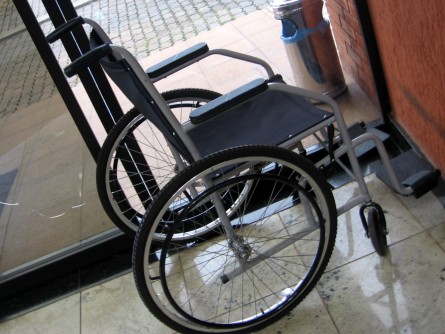How bad have universities made the lives of adjunct professors? Last week an op ed appeared in the Pittsburgh Post Gazette describing the sad fate of an adjunct French professor at Duquesne University. The 83-year-old Margaret Mary Vojtko died of a massive heart attack. According to the piece’s author, Daniel Kovalik, Vojtko called him a couple of weeks ago. She was undergoing radiation treatments for cancer, her house was falling down because she couldn’t afford its upkeep and someone had (unbeknownst to her) referred her to Adult Protective Services because she did not appear to be able to take care of herself.
Vojtko, according to Kovalik, would have been capable of caring for herself were it not for the fact that her long-time employer had left her destitute:
Margaret Mary was an adjunct professor, meaning that, unlike a well-paid tenured professor, Margaret Mary worked on a contract basis from semester to semester, with no job security, no benefits and with a salary of between $3,000 and just over $3,500 per three-credit course.
Duquesne does not dispute the numbers here, but the administration says that the university reached out to her on multiple occasions, even inviting her to live on campus. There is no doubt that adjuncts are in a difficult situation. Unless they are married to someone who pulls in a bigger salary and benefits, or unless they take multiple jobs on different campuses, it is hard to imagine how one can live on an adjunct salary.
But this is not just a dispute about adjuncts. This is a dispute about unionization. Daniel Kovalik is senior associate general counsel of the United Steelworkers union, which the adjuncts of Duquesne decided to join last year. But the school has not recognized the union, citing an exemption that allows religious universities to not recognize unions because it would interfere with the religious governance of the school. This exemption has been challenged on a number of occasions by the NLRB. And Vojtko’s death is clearly serving Kovalik’s and the union’s political purpose.
Kovalik has been able to embarrass a Catholic school (whose church has, more often than not, come down on the side of “workers’ rights” and unionization). The truth of the matter is that most Catholic schools behave in the exact same way as secular schools and should probably be subject to the same restrictions as a result. As Patrick Reilly of the Cardinal Newman Society wrote in the Wall Street Journal in 2011, “The NLRB has put itself in the position of judging schools' religious character, and it has concluded over the years that many Catholic institutions are inconsistent in their application of Catholic principles to teaching, course requirements, campus life and faculty hiring.” But if Catholic institutions were applying the church’s religious teachings, they might have to accept unionization anyway.






